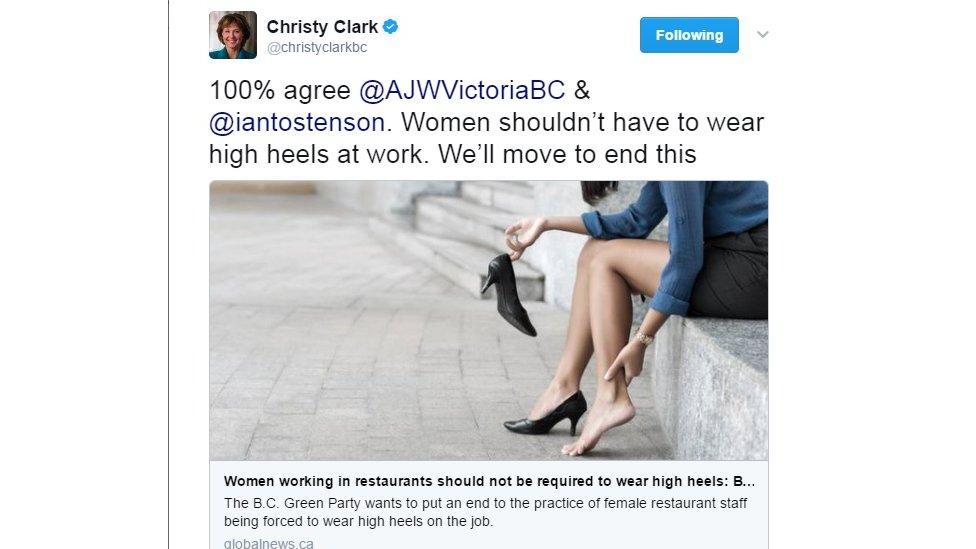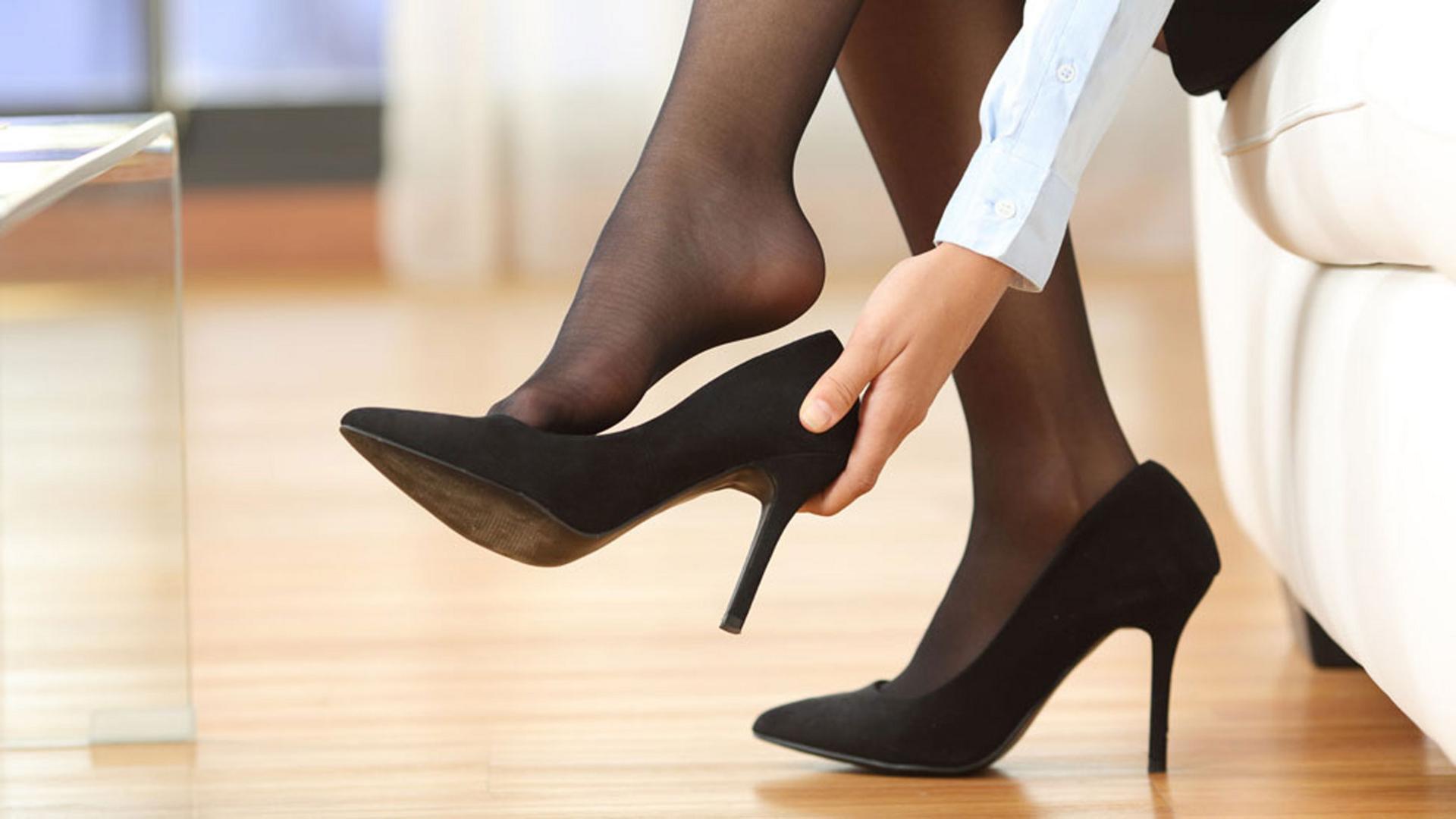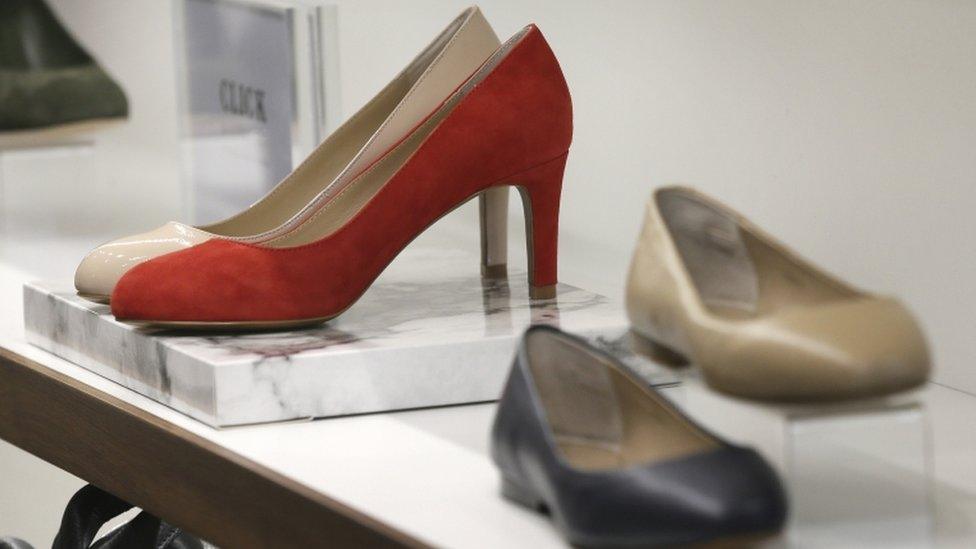British Columbia may end high heel dress code requirements
- Published

There is a growing movement to end high heel requirements for female employees
A Canadian province is joining the movement to end high heel requirements for female employees.
British Columbia Premier Christy Clark says her government will move to scrap the dress code requirement.
This comes after a provincial Green party politician introduced a bill in the BC legislature aimed at preventing employers from setting gender-based footwear requirements.
Mandatory high heel dress codes were recently debated by MPs in the UK.
On Sunday, Premier Clark tweeted in support of BC Green Party leader Andrew Weaver's private member's bill, saying she agreed "100%" with not forcing women to wear heels at work.
Mr Weaver tabled a private member's bill last week "designed to prevent employers from setting varying footwear and other requirements based on gender, gender expression or gender identity".
An employee in BC who feels a dress code is discriminatory could file a human rights complaint, though there are concerns that workers, especially in low wage and precarious positions, would be hesitant to do so.
High heels - and whether women should be required to wear them in the workplace, or at the Cannes film festival - has become a fashion flashpoint in recent years.

BC Premier Christy Clark tweeted her support for the end of high heel requirements
In Canada, much of the debate around dress codes for female employees has centred around the restaurant industry, where critics have said gender-specific dress codes are too common and based on stereotypes, external or sexist ideas of how a woman should dress.
Mr Weaver's bill was in part inspired by a series of reports, external into the west coast province's service industry. In Ontario, some of the largest restaurant chains have taken steps, external to phase out "sexualised" dress codes.
It is not a new issue in the food service industry. In 2000, Nevada cocktail waitresses, external launched a "Kiss My Foot" campaign to agitate against being forced to wear heels in casinos.
Mr Weaver said he was surprised to learn that companies still had high heel policies in place.
"You're kidding, this is a thing in 2017?" he said he thought at the time.
While these dress codes appear most common in bars and restaurants, Mr Weaver's bill would cover all workplaces, including retail and corporate offices.
BC Restaurant and Food Services Association chief executive Ian Tostenson said he did not expect pushback from industry members, who understand it could be a health and safety concern for wait staff.
It is not clear whether Ms Clark's government will support Mr Weaver's proposed bill or take separate steps to end the practice.
A receptionist was sent home without pay for not wearing heels.
In the UK, high-heel dress code policies have been in the headlines since a London receptionist was sent home from work in December 2015 for not wearing high heels at the accountancy firm PwC.
Nicola Thorp subsequently launched a petition asking that dress code laws be changed so women have the option to wear flat formal shoes in the workplace. It received over 152,000 signatures.
The UK Parliament debated the issue 6 March, and the UK government has said the dress code imposed on Ms Thorp was unlawful.
The firm that sent Ms Thorpe home in 2015 has also changed its policies.
But a House of Commons report, external found that requirements to wear high heels remain widespread across the UK.
- Published25 January 2017

- Published6 March 2017

- Published12 May 2016

- Published11 May 2016
